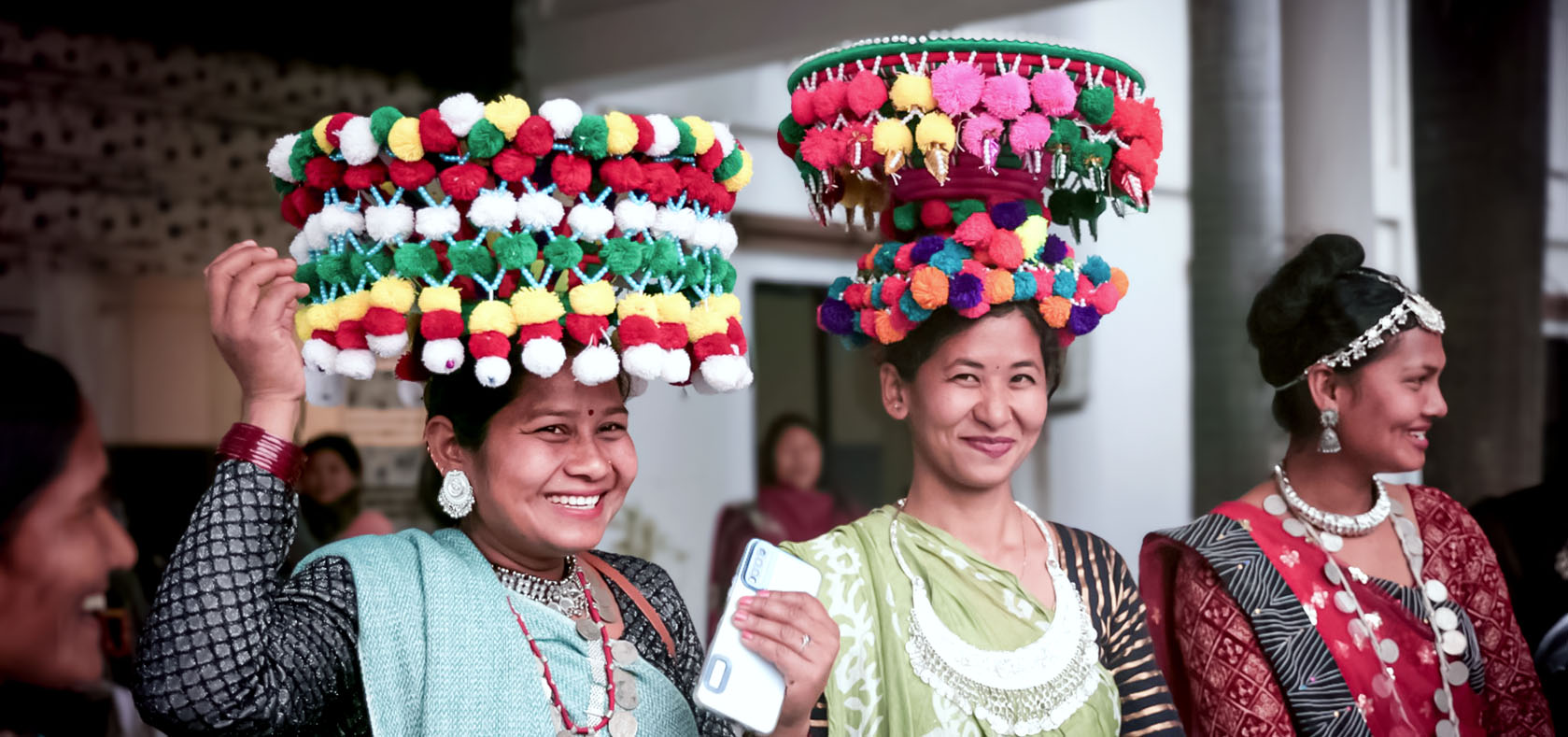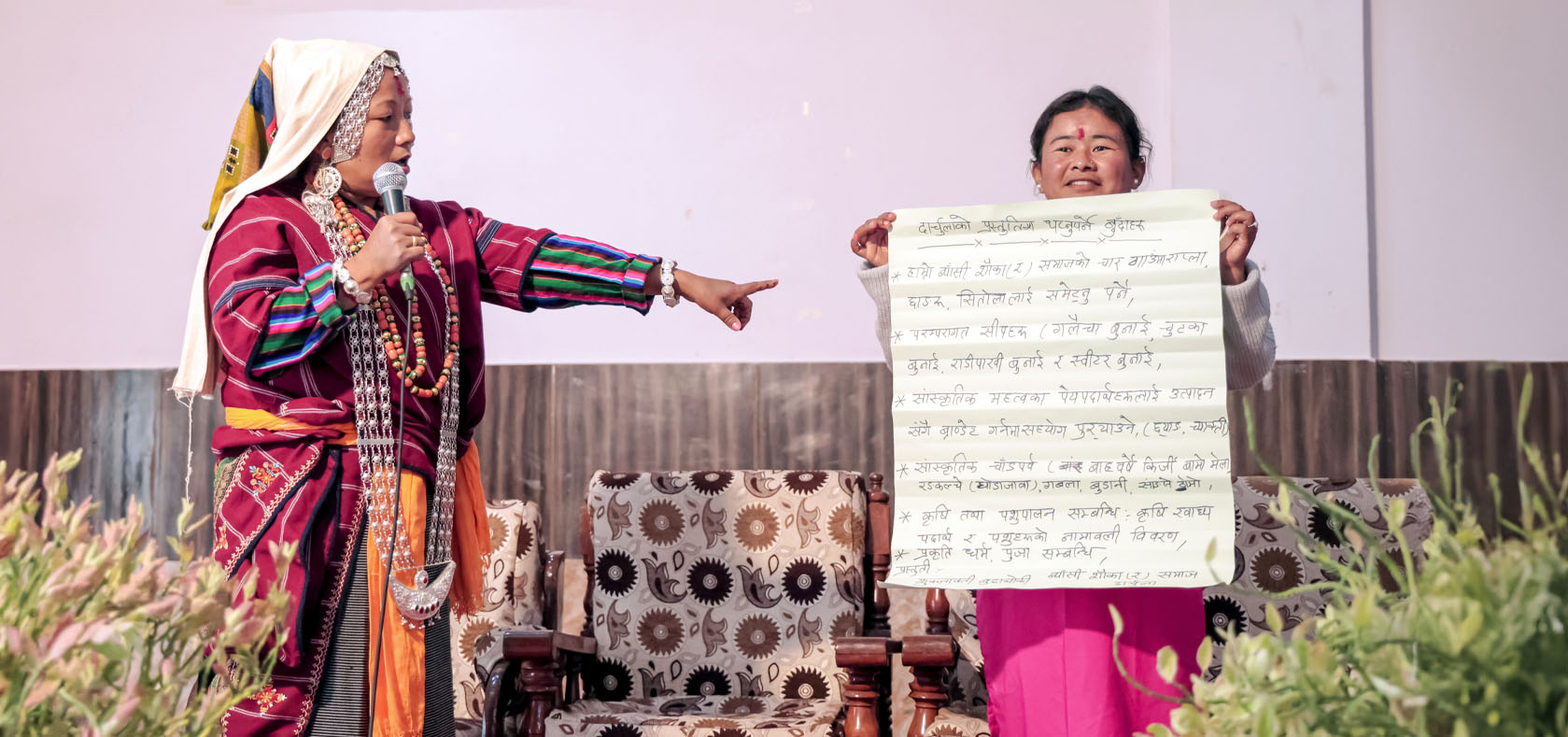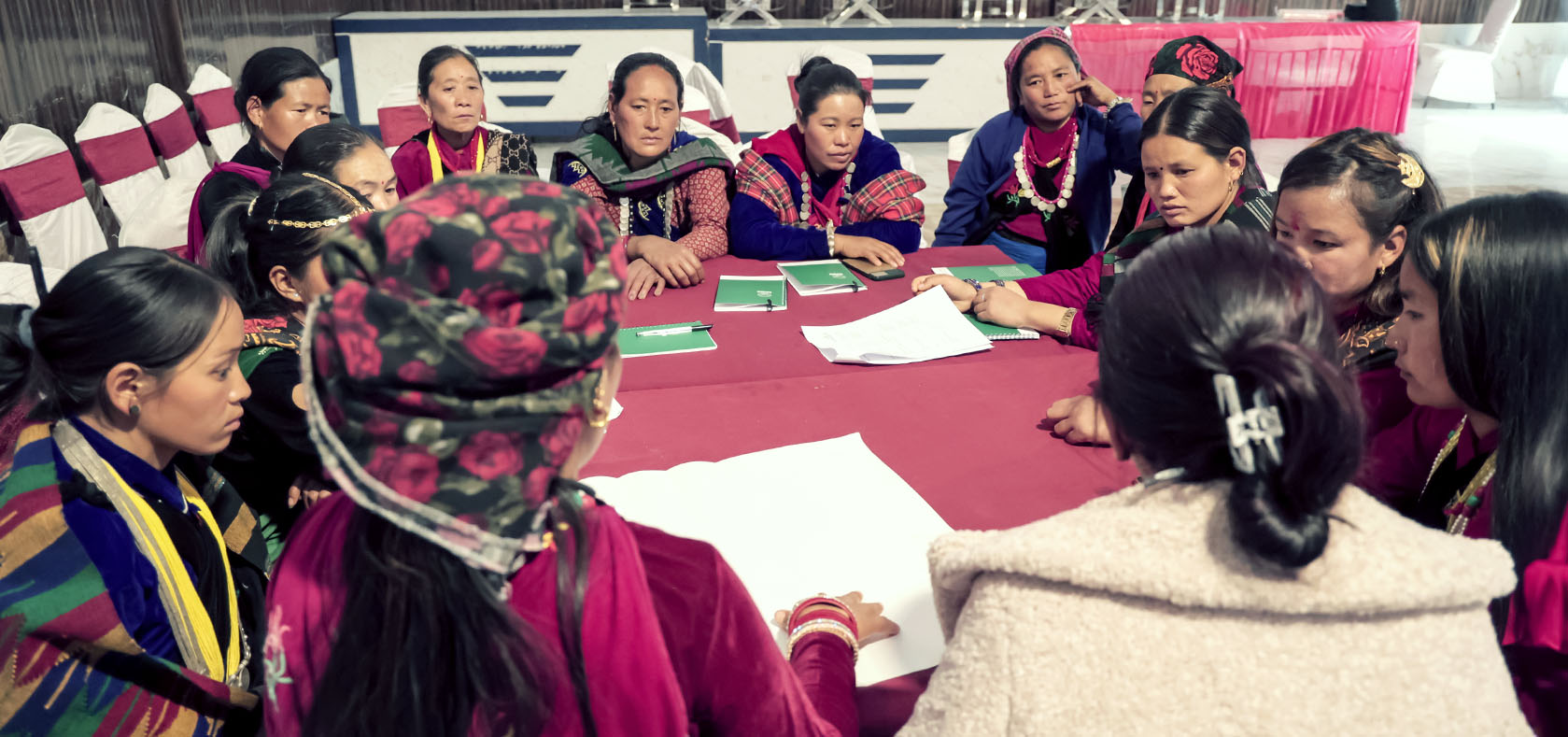Indigenous women discuss their contribution to climate action in Nepal
Date:
Author: Sangharsha Panta

Indigenous women have cultivated a symbiotic relationship with nature, its resources, and the surrounding landscape from time immemorial. They persist in practicing traditional livelihoods, preserving ancestral knowledge, and skills, upholding cultural values, and engaging in sustainable management of natural resources, biodiversity, and climate action.
A two-day “Pre-Validation Regional Workshop on Indigenous Women’s Knowledge and Perspectives in Climate Action” was organized on 19-20 February 2024 by the Centre for Indigenous Peoples’ Research and Development (CIPRED) in Banke district of Nepal. Supported by UN Women, the workshop brought together over 60 participants including Indigenous women, youth, local government, and communities from East Rukum, Bardiya, and Darchula districts. Inaugurated in the presence of the Chief Guest, Honorable Rina Rana, a member of the Indigenous Nationalities Commission, the workshop presented and discussed the initial findings of the study on Indigenous women’s knowledge on climate action in Nepal, conducted in early 2024.

Group discussions and presentations ensued on various themes including climate change, Indigenous food, herbal medicine, handicrafts, enterprises, and the transmission of Indigenous knowledge to younger generations.
The primary aim of the workshop was to divulge the initial findings of the study on the roles and contributions of Indigenous women in climate action in the study area. Furthermore, it aimed to solicit valuable feedback on these findings from key respondents and stakeholders, including local government representatives, Indigenous organizations, and community elders and leaders. "Young Tharu women often lack awareness about the importance of our traditional knowledge, cultural values, rituals, and festivals. Working as an enumerator, I've gained insight and appreciation for the opportunity to safeguard our cultural values. I hope other youth from my community can also access similar opportunities, fostering intergenerational knowledge and values transfer," said Ms. Surakshya Chaudhary, a Tharu Indigenous Youth from Bardiya and a graduate student of Rural Development, who worked on the research.
The event also included an exhibition showcasing indigenous seeds, food, plants, and traditional handicrafts from Tharu, Magar, Gurung, and Byansi Sauka Indigenous communities. Moreover, participants engaged in a collage display session, arranging pictures from each community into various themes to provide insights into the present situation of their villages.
"We are not informed about any funds or activities in our communities; therefore, we are rarely involved in project activities, and representation of Sauka women is hardly there at the local level," explained during the event Ms. Manju Budhathoki, a Sauka Indigenous woman and member of Byansi Sauka Samaj.

The workshop culminated with closing remarks by Mr. Tej Bahadur Bhat, Mayor of Madhuwan Municipality, Bardiya who underscored the significance of preserving indigenous cultural values, skills, and practices, emphasizing their continuity through younger generations. Overall, the two-day workshop witnessed active participation from Indigenous women and youth, fostering substantial discussions and providing valuable inputs to the research study.